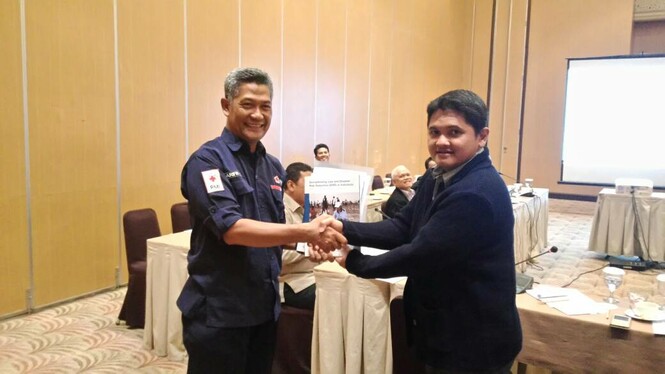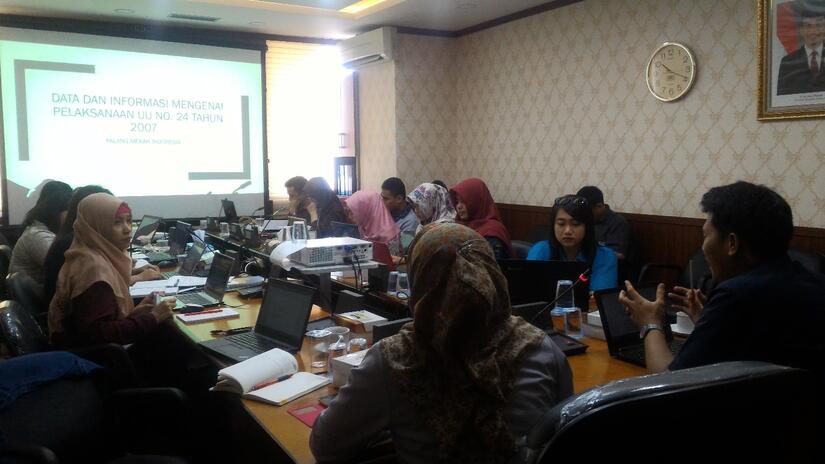

Over the years, Palang Merah Indonesia (PMI) has been actively at the forefront of the various processes to develop and strengthen the legal framework for DRM in Indonesia. Most recently, they have been advocating for the review and update of Indonesia’s landmark disaster management law, Law No. 24/2007. PMI is part of a National Platform for DRR (‘PLANAS-PRB’), and one of the key members of working group or ‘alliance’ for the strengthening of the law called AMPU-PB (or ‘Community Alliance for Strengthening Law on Disaster Management’).
Through these groups, PMI is one of the main organizations leading discussions around the strengthening of the DM Law. This type of ‘collective advocacy’ used by PMI and its partners has yielded some influential results. By the end of 2016, PMI, together with AMPU, had held several forums to reflect on previous disasters and how prevention and response is considered in the existing disaster management law. Furthermore, they also presented the results of a study undertaken by PMI and IFRC on ‘Strengthening Law and DRR in Indonesia’, which was also the topic of a stakeholder consultation in February 2016.
In commemoration of the 10th anniversary of the disaster management law in late April 2017, PMI and AMPU conducted a reflection on disaster management in Indonesia and how to strengthen the national disaster management law. As a leading actor in Indonesia, PMI is also often invited to provide insights into how the disaster management law could be improved. Key issues that have been advocated for as part of the law reviews include issues around definitions, status and level of disaster, budget, community participation, and the shifting paradigm from response to DRR (which links with other sectors, especially climate change).
These discussions are being had in the hope that an amended law will accommodate the full spectrum of disaster risk management, including new and emerging trends. The discussion also highlighted the importance of improving the institutional aspects of BNPB (the Indonesian national disaster management authority) in an effort to strengthen cross-sectoral coordination. This feedback was echoed by PMI’s Secretary General Dr. Ritola Tasmaya, who has outlined the need to strengthen institutional coordination among sectors.
As a result of their advocacy, the 2007 law was entered into the national legislation program (prolegnas) for 2015-2019 as one of the main acts to be amended. Although the law is far from the top of the list, its presence there brings hope that the success of PMI’s advocacy will yield further positive results.
There is no doubt that Indonesia already has an extremely comprehensive disaster management law, and broader frameworks which relate to the full DRM spectrum. In light of this, PMI maintain that a review of the existing law is not intended to undermine this system, but rather to consolidate and also improve implementation. This will then provide an even better legal basis which reflects new and emerging risk, and enables resilience.